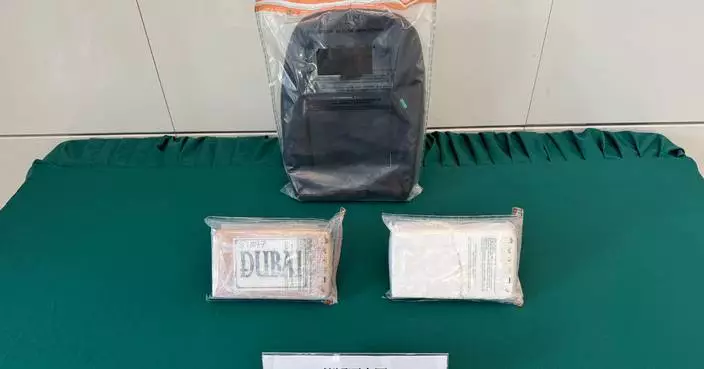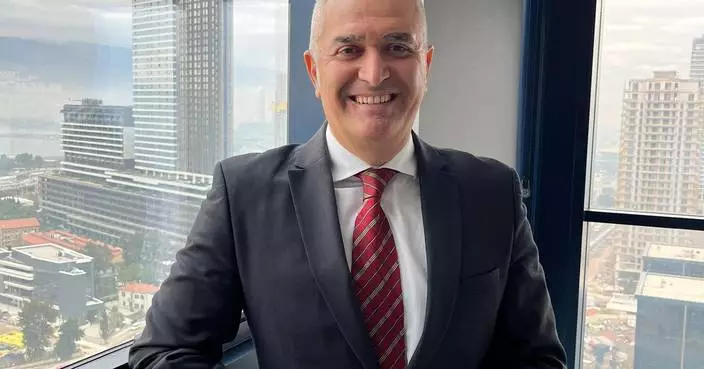Grading of beach water quality released
The Environmental Protection Department (EPD) today (January 10) released the latest grading of water quality for six gazetted beaches that are open all year round for swimming.
Six beaches were rated as Good (Grade 1).
Grade 1 beaches are:
Casam Beach |
Golden Beach |
Clear Water Bay Second Beach |
Lido Beach |
Deep Water Bay Beach |
Silverstrand Beach |
Compared with the grading released last week, there was no change in the grading for these beaches.
Under the present grading system, beaches are classified into four grades, namely Good (Grade 1), Fair (Grade 2), Poor (Grade 3) and Very Poor (Grade 4), according to the level of E. coli in the water. Grades are calculated on the basis of the geometric mean of the E. coli counts on the five most recent sampling occasions.
While the ratings represent the general water quality at the beaches, an EPD spokesman reminded members of the public that water quality could be temporarily affected during and after periods of heavy rain. Bathers should avoid swimming at beaches for up to three days after a tropical cyclone or heavy rainfall.
A summary of beach grades is published weekly before the weekend. The latest beach grades based on the most current data may be obtained from the EPD's website on Beach Water Quality (www.epd.gov.hk/epd/beach) or the beach hotline, 2511 6666. Members of the public can also obtain the latest daily water quality forecast information for all beaches that are open for swimming through the EPD's dedicated webpage on the beach water quality forecast (www.epd.gov.hk/en/BWQForecast).
IMF recognises Hong Kong's position as international financial centre and fiscal consolidation path
Following the completion of the 2024 Article IV Consultation with the Hong Kong Special Administrative Region (HKSAR), the International Monetary Fund (IMF) Staff Mission published its assessment on the Concluding Statement today (January 10).
The Mission notes that Hong Kong's economy is on a path of gradual recovery, albeit facing multiple headwinds. The Mission reaffirms Hong Kong's status and function as an international financial centre and recognises that Hong Kong's financial system remains resilient, supported by robust institutional frameworks, ample room for policy buffers, and smooth functioning of the Linked Exchange Rate System (LERS).
The Mission considers that the direction and path of the HKSAR Government's gradual medium-term fiscal consolidation is appropriate given the current economic conditions. The Mission expects fiscal space to remain abundant, and projects that the fiscal deficit will narrow further, with the support of new revenue measures, the effects of expenditure control, and the winding down of pandemic-related expenditure.
The Financial Secretary, Mr Paul Chan, said, "I welcome the Mission's recognition of the steady economic recovery of Hong Kong. Once again, the Mission reaffirms the resilience of Hong Kong's financial system. We will continue to reinforce and enhance Hong Kong's position as an international financial centre, and give full play to our unique function of connecting with both the Mainland and the world under the 'one country, two systems' arrangement.
"I also appreciate the Mission's recognition of our gradual approach to fiscal consolidation. In the face of the uncertain external political and economic environment, and the ongoing structural adjustments taking place in Hong Kong's economy, we will identify new revenue sources while managing expenditure growth, with a strategy focused on the latter, with a view to restoring fiscal balance in the next few years. On controlling expenditure, we will manage the growth of recurrent expenditures to gradually narrow the fiscal gap. On seeking new revenue sources, we will maintain Hong Kong's competitive advantage of a simple and low tax system and take into account the actual situation in society to prevent undermining the momentum of economic recovery, while adhering to the 'affordable users pay' principle thereby minimising the impact on ordinary members of the public.
"The HKSAR Government will carefully study and analyse the various recommendations made by the IMF."
The Chief Executive of the Hong Kong Monetary Authority (HKMA), Mr Eddie Yue, said, "I welcome the Mission's recognition of our robust regulatory framework and significant buffers to safeguard financial stability amid a changing environment. As noted by the Mission, our LERS remains as the most suitable arrangement for Hong Kong given its highly open economy and large and globally integrated financial services industry. Its credibility continues to be supported by our robust institutional framework and policy, including a transparent mechanism, ample foreign and fiscal reserves, robust regulatory and supervisory frameworks, and a healthy financial system. We will continue to stay vigilant and safeguard financial stability while enhancing Hong Kong's status as an international financial centre."
The Mission projects Hong Kong's real Gross Domestic Product to grow by 2.7 per cent in both 2024 and 2025. The Mission recognises the HKSAR Government's efforts in developing new sources of growth, including by promoting the Guangdong-Hong Kong-Macao Greater Bay Area initiative, increasing investment, and attracting foreign talent and businesses in high-value industries to Hong Kong. The Mission also recognises that it is appropriate for the HKSAR Government to cancel all demand-side management measures for residential properties.
The Mission acknowledges that locally incorporated banks are well capitalised and liquid, with strong profitability. Domestic mortgage delinquencies remain low and household credit quality is supported by low unemployment and the sector's high net worth. The Mission also welcomes the HKMA's decision to introduce a positive-neutral Counter-Cyclical Capital Buffer (CCyB) rate, which will increase the banking sector's capacity to support lending to the real economy when system-wide risks materialise.
The Mission also notes that the HKSAR Government and financial regulators have made significant strides in developing a dynamic green and sustainable finance landscape, and advancing the development of a sustainable finance hub could enhance Hong Kong's competitiveness as an international financial centre.
The Mission visited Hong Kong from November 11 to 22 last year, with discussions held with HKSAR Government officials, financial regulators and private sector representatives. The Concluding Statement is in the Annex. The relevant full report will be discussed by the IMF Executive Board in January 2025.





